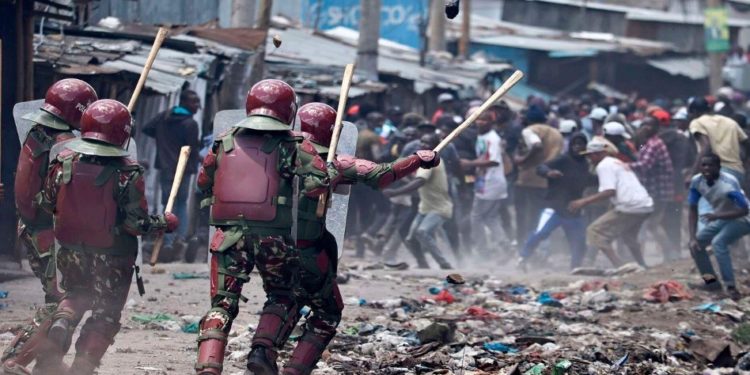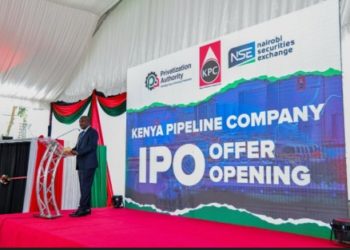The recent wave of protests across the country has resulted in a tragic toll of injuries and fatalities, predominantly attributed to police actions.
The deployment of live bullets to disperse peaceful demonstrators has raised grave concerns about the methods employed by law enforcement agencies. Moreover, the use of tear gas and, shockingly, toxic gas, as witnessed in the latest protests, has amplified the outrage among citizens and human rights organizations.
John Waiganjo, the commissioner of the Independent Policing Oversight Authority (IPOA), voiced his frustrations in a candid interview this morning. He highlighted the unprecedented level of non-cooperation from police commanders and senior officers.
“We are working under very tough conditions. In the lifetime of IPOA, we have not seen the level of non-cooperation we’re seeing now from the police commanders and senior police officers,” Waiganjo stated, emphasizing the growing challenges faced by the oversight body in holding law enforcement accountable.
The IPOA commissioner’s remarks came in the wake of a public appeal for evidence to hold the police accountable for their actions during the protests. The public’s assistance in documenting incidents of police brutality is now seen as crucial in pursuing justice for the victims and ensuring accountability within the police force.
The commissioner also condemned the police for clearly breaking the law. He noted that the excessive use of force, especially against peaceful protesters, is a blatant violation of fundamental human rights. The recent incidents have drawn widespread condemnation from various quarters, including civil society organizations, human rights defenders, and international bodies. The use of live ammunition against unarmed protesters is particularly alarming and raises serious questions about the training, conduct, and oversight of the police force.
In light of the challenges faced by IPOA, Commissioner Waiganjo mentioned the possibility of seeking judicial intervention. “We might have to apply the law and involve the judiciary to issue a warrant of arrest for police commanders so they can come and give information,” he said.
















